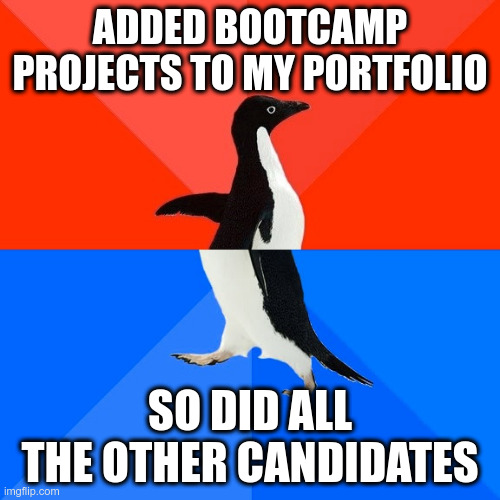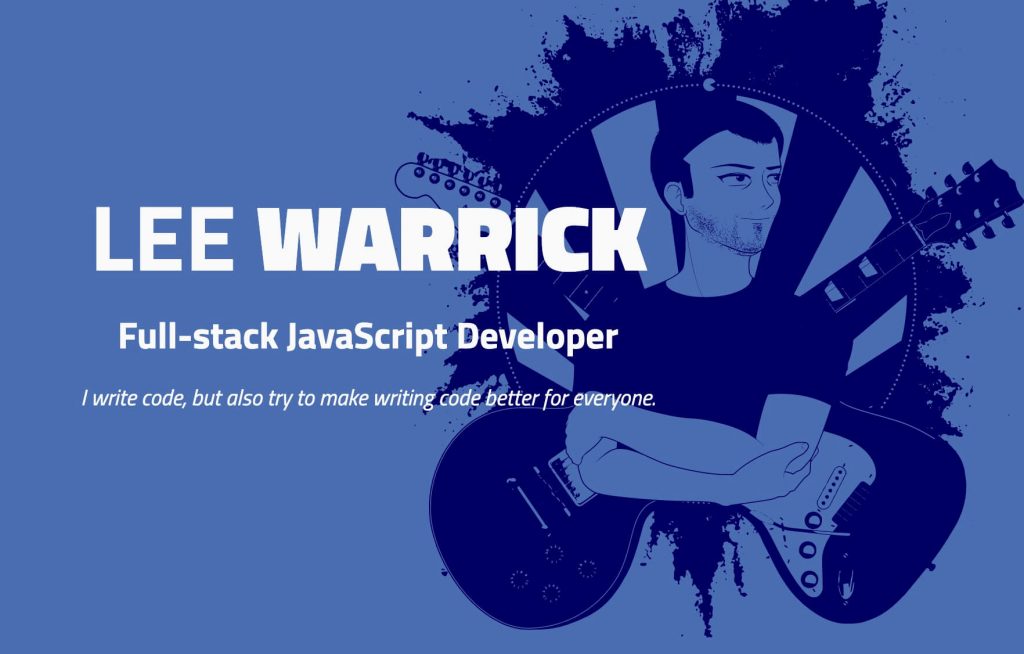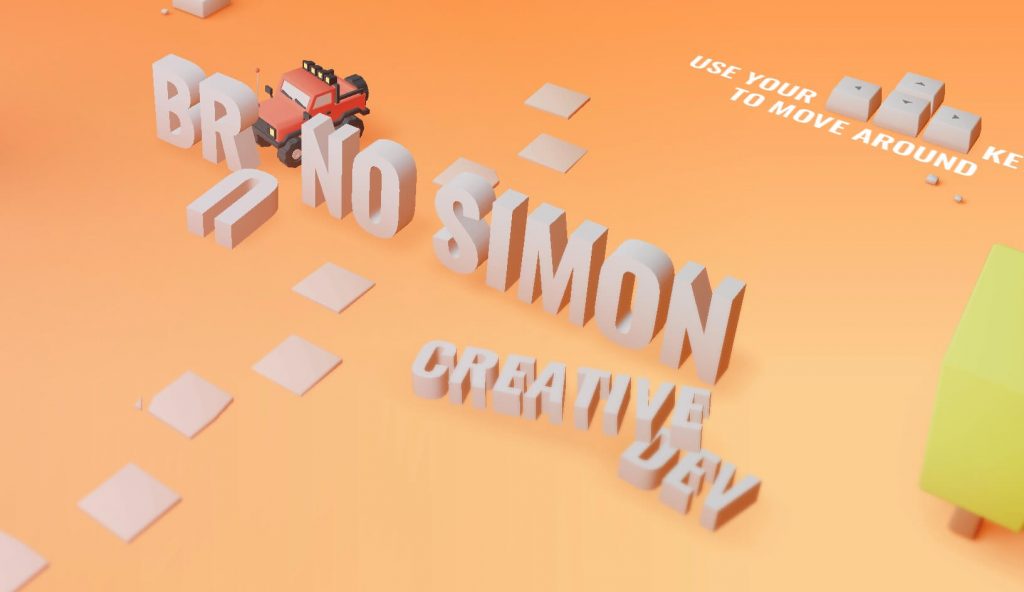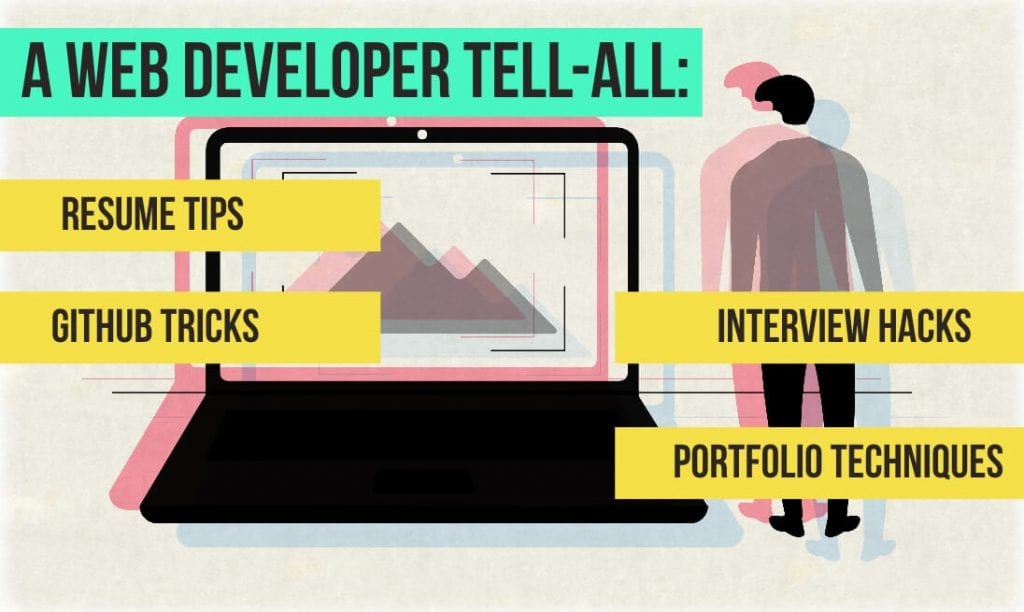What the heck is a web developer portfolio and why might you need one?
In this post you’ll learn all about web developer portfolios for 2021.
This post contains affiliate links. I may receive compensation if you buy something. Read my disclosure for more details.
TLDR What is a web developer portfolio?
🚧 A web developer portfolio is the thing that contains your web developer projects.
📦 In addition to projects, it contains multiple other components like contact form, bio, and links to source code.
❓If you want to spice up your web developer portfolio so you can get callbacks & interviews from employers:
🗂️ Check out the course Portfolio Surgery created exclusively for new web developers.
📚 It’s also a book.
What is a web developer portfolio: Definition
First and most importantly, a web developer portfolio is the thing that contains your web developer projects.
Think of it as a repository for your best work.
Secondly, a web developer portfolio illustrates who you are as a developer. For example, it answers questions like:
What’s your developer speciality?
Which technologies have you studied?
What do you excel at?
What types of problems do you solve?
At the end of the day, your web developer portfolio is not only a marketing tool, but proof that you have the necessary tech skills to make you employable.

Thus, a portfolio is very important from an employer standpoint. In fact, I argue that it’s your most important asset as a new developer.
What should I include in my portfolio?
At the very minimum, you portfolio should include:
- 4-6 of your best projects
- Links to the source code
- Links to the live demo
- A list of your tech skills
- A brief bio (you don’t want to be another number in the pile, but you don’t want to make their eyes glaze over)
- Contact info (see pro tip below)
What is a web developer portfolio: Examples
Web development is a very diverse field.
Some web devs are focused on the frontend with design and user interfaces.
Others are working behind the scenes in the backend with databases and languages like PHP.
And still others are using the full stack, from React to Node and everything in between.
That is to say, no two web developer portfolios will look the same. Nor should they! A portfolio is a unique representation of you as a developer.
Here are a few examples of developer portfolios:
www.julia-codes.com
Julia Codes is a really good example of an attention-grabbing junior web developer portfolio:

This portfolio is clean, it’s informative, and the projects are easy to access.
Further, she links to both the live demo and the source code for each.
www.leewarrick.com
Lee Warrick’s portfolio stood out to me for a few reasons.

Number one, he took a very standard (and normally quite boring) project and transformed it into something completely customized.
Over the years I’ve literally seen a thousand or more of TODO apps. But Lee added his special skillset to make it pop.
Number two, Lee features accomplishments that center around communication and collaboration. These are two critically important components in any web developer’s career.
Unfortunately, these are skills that are often neglected by many new developers.
So by including them, not only is Lee highlighting these skills, he’s also standing out from the crowd.
www.bruno-simon.com
This is hands-down the most creative, insanely addicting portfolio I’ve ever come across.
You use your keyboard’s arrow keys to navigate a 3-D Baja truck. Then you can plow through his name and other obstacles while exploring the terrain.
Keep driving and you’ll discover his portfolio projects.
You’ll also discover some brilliant examples of grabbing the viewer’s attention!

🔥 PRO TIP 🔥
📨 Make it as easy as possible for your potential employers to contact you.
📧 Instead of posting your email address or linking to socials, include a contact form in the portfolio.
🧾 This makes outreach fast and easy for employers.
Where can I create & host my portfolio?
Possibly the fastest, easiest and cheapest way to get started with launching a developer portfolio is using GitHub Pages.
Essentially, this is a free service for all GitHub members where you can host any static site. (Static site, in simple terms, means no backend [i.e. PHP, Node, etc.])
In addition, you can use a static site generator like Jekyll which has built-in support for GitHub Pages.
GitHub has ample documentation for setting this up. Further, if you know how to use GitHub and have a few basic coding skills, this will be relatively easy.
However you don’t have to use Jekyll with GitHub Pages. You can also use other static site generators like Gatsby which is built with React.
But you don’t have to use GitHub pages to create and host your web developer portfolio.
Not at all! You can use whatever you’re comfortable with.
For example, if you’re a WordPress developer, why not use WordPress for creating your portfolio?
Further, you can use just about any hosting service you prefer. Just make sure that the hosting provider can support your tech stack. For example, if you have a Node app, you may not be able to run it on some shared hosting plans.
But remember, no matter what you use to create your portfolio, the creation process itself is excellent practice.
Because think about it: You’re using your skills to solve a real-world problem.
To illustrate: You didn’t have a place to feature your projects.
So what did you do?
You built a web developer portfolio!
And at the end of the day, that is what we really get paid for as web developers: to solve problems.
What is a web developer portfolio: Resources / Tools
Here are some resources and tools you may find useful when building your web developer portfolio:
- How to Get a Job in Web Development – this video course shows you how to set up your portfolio for maximum results (and has helped hundreds of developers land their first job).
- Dribbble – possibly the most awkwardly-named domain name of the 21st century, this site is good for getting design inspiration.
- Free SVG background generator – spruce things up!
- Multiavatar – avatar service that represents people from numerous races, cultures, age groups, worldviews & more. In total, it’s possible to generate over 12 million unique avatars.
- Skeleton CSS – responsive CSS boilerplate.
- Static Site Generator list – a comparison of static site generators.
- Tutorial video on getting GitHub pages set up with a Bootstrap template.
- Tutorial video on getting GitHub pages set up using
gh-pagesmodule. - And here’s a tutorial video on getting GitHub pages set up with GitHub desktop.
Final Thoughts
A web developer portfolio is your most important tangible asset as a new developer.
Remember, it’s never too early to get started. You can put basic projects in it for practice. After that, upgrade as soon as you create a bigger, better project.
In time, you’ll have gone from humble TODO app to things like CRUD apps, web games and other compelling applications.
Up next: Treehouse Review [Is Treehouse Worth it in 2021?]
What is a web developer portfolio?
A web developer portfolio is the thing that contains your web developer projects. In addition to projects, it contains multiple other components like contact form, bio, and links to source code.
Where can I host my web developer portfolio?
You can host it wherever you’d like. Just make sure your hosting provider is able to support your tech stack. For example, some shared hosting plans are unable to support Node apps.
What are some good examples of web developer portfolios?
Julia Codes is a really good example of an attention-grabbing junior web developer portfolio. Lee Warrick’s portfolio stood out to me for a few reasons. For example, he took a simple TODO app and transformed it into something compelling. Bruno Simon’s portfolio is the wildest, most compelling portfolio I’ve ever seen.

